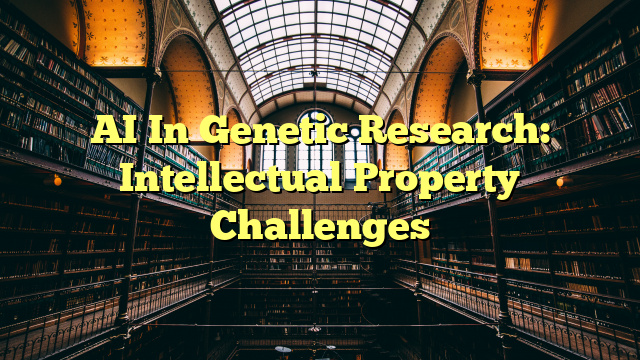Table of Contents
IPR Issues with AI
Artificial Intelligence (AI) has revolutionized various industries, including genetic research. However, the integration of AI in this field has raised several intellectual property rights (IPR) challenges. One of the main issues is determining the ownership of AI-generated inventions and discoveries. Since AI systems can autonomously generate new ideas and solutions, it becomes difficult to attribute the intellectual property to a specific individual or entity.
The lack of clear guidelines and regulations regarding AI-generated intellectual property has led to legal disputes and uncertainties. Companies and researchers are grappling with questions of ownership, licensing, and protection of AI-generated inventions.
Does Generative AI Violate Copyright Laws?
Generative AI refers to AI systems that can create original works, such as music, art, or literature. The question of whether generative AI violates copyright laws is a complex one. While AI systems can produce original content, they often rely on existing data and patterns to generate new works.
Some argue that generative AI is a tool rather than a creator, and therefore, the copyright should lie with the human programmer who created the AI system. Others believe that AI-generated works should be treated as independent creations and be eligible for copyright protection.
Currently, there is no clear consensus or legal framework regarding the copyright status of generative AI. This ambiguity poses challenges for both creators and users of AI-generated content.
Legal Risks of Generative AI
The use of generative AI poses several legal risks, including potential copyright infringement, plagiarism, and violation of intellectual property rights. Since AI systems can generate content that resembles existing works, there is a risk of unintentionally infringing upon someone else’s intellectual property.
Additionally, the lack of transparency in the decision-making process of AI systems can make it difficult to determine if the generated content is truly original or if it incorporates copyrighted material.
Companies and individuals using generative AI should exercise caution and implement measures to ensure compliance with intellectual property laws. This may involve conducting thorough checks for similarity to existing works and obtaining appropriate licenses or permissions.
Why Shouldn’t Artificial Intelligences Hold Patents?
Granting patents to artificial intelligences for the devices they invent raises ethical and legal concerns. Patents are typically awarded to human inventors as a reward for their creativity and contribution to society. Allowing AI systems to hold patents would blur the line between human and machine inventors.
Furthermore, AI systems lack the legal capacity and moral agency to hold rights and responsibilities. They are tools created by humans and should not be granted the same legal status as human inventors.
Granting patents to AI systems could also stifle innovation by creating monopolies and hindering competition. It is important to maintain a balance between incentivizing innovation and ensuring fair access to technology.

